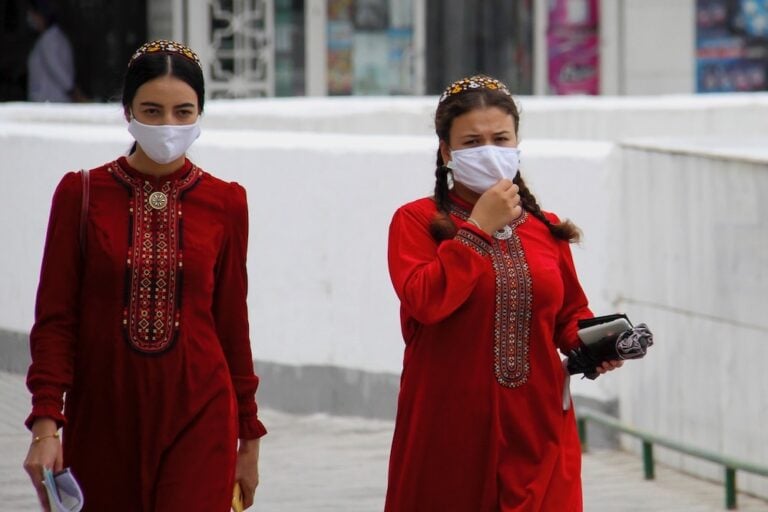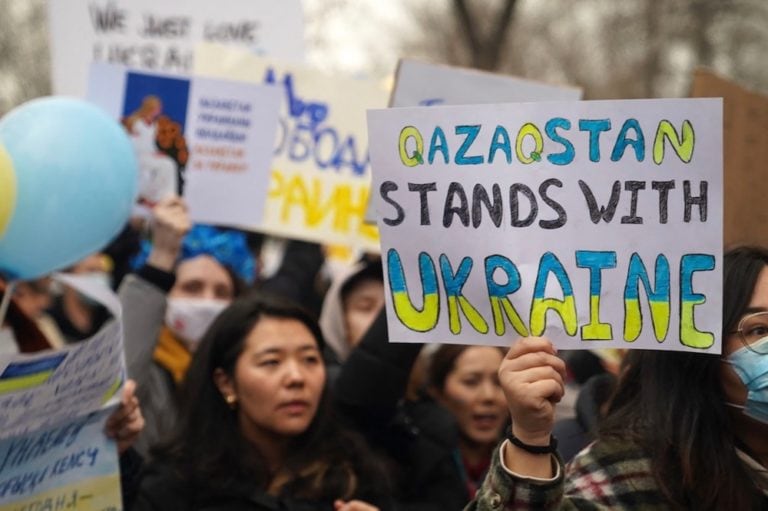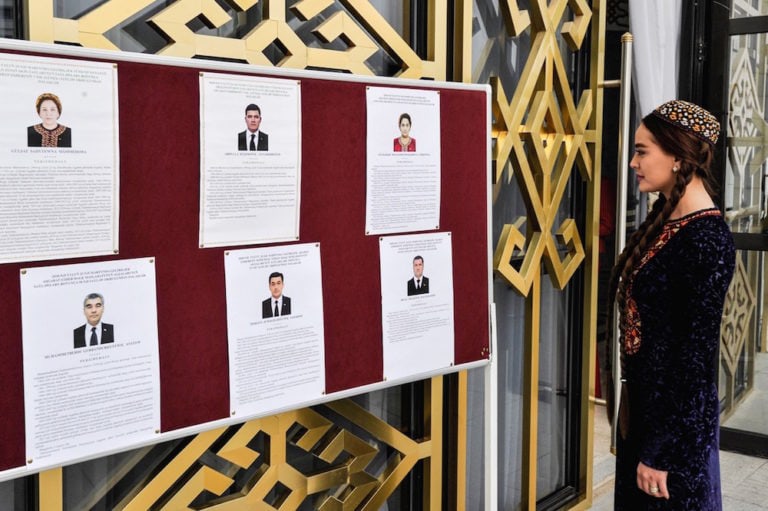The first media law in the history of Turkmenistan came into effect on 4 January. In principle, it proclaims freedom of expression and bans censorship but it has so far done nothing to narrow the gulf between the official discourse and the reality of one of the world’s most closed and repressive countries.
(RSF/IFEX) – The first media law in the history of Turkmenistan came into effect on 4 January. In principle, it proclaims freedom of expression and bans censorship but it has so far done nothing to narrow the gulf between the official discourse and the reality of one of the world’s most closed and repressive countries.
“The reign of the arbitrary has prevailed until now in the media domain so the existence of a law is a small step forward but much will have to change before its principles and provisions are translated into facts,” Reporters Without Borders secretary-general Christophe Deloire said.
“For the time being, some of its provisions, although very satisfactory on paper, border on the ridiculous when confronted with the reality of journalist practices. The state is supposed to ‘guarantee media pluralism and independence’ but in practice the media are monolithic and controlled by the state and independent journalism is unthinkable. We strongly urge the authorities to bring practice into line with their own legislation.
“The attitude of the authorities, the political system, and the justice system will all have to change fundamentally for the rights enshrined in this law to acquire real meaning and for the public to feel sufficiently confident to claim them. Without real democratic reform, this law, like so many others, will remain a complete fiction.”
Deloire added: “We nonetheless salute the Organization for Security and Cooperation in Europe’s contribution to the drafting of this law. Turkmenistan now has a law that recognizes that news and information providers have rights, and we will not hesitate to remind the authorities of the need to respect their own laws.”
Passed by the Mejlis (parliament) on 22 December and quickly signed into law by the president, the “Law on the Mass Media” that took effect on 4 January in theory “determines the rules governing the collection, processing and dissemination of news and information” and “establishes the rights, duties and responsibilities” of news providers.
The contrast is striking between the Gurbanguly Berdymukhammedov regime’s highly repressive practices and the “principles of state policy in the media domain” that are spelled out in article 4.
“The media are free,” article 4 says. “No one may ban or prevent the media from disseminating information of public interest except under the provisions of this law (…) citizens have the right to use all media forms to express their opinions and beliefs, and to seek, receive and impart information.” The article also forbids “media censorship,” “interfering in the activities of the media” and “monopolization of the media by persons or entities.”
In practice, all the Turkmen media are directly controlled by the state, which uses them to circulate propaganda and severely punishes any failure to toe the official line. The president owns most of the national newspapers.
There is just one privately-owned weekly, Rysgal (Success), which was launched in September 2010. It is dedicated to promoting private enterprise and does not pursue critical editorial policies. It is published by a group of businessmen, the Turkmenistan Union of Industrialists and Entrepreneurs, which became the country’s second “political party” shortly after the official adoption of a multiparty system in January 2012.
Like the ban on censorship in the new media law, the official abandonment of a one-party system was purely illusory. No opposition party has been created and elections continue to be non-competitive.
The new media law is for the time being too disconnected from reality for a detailed analysis to be appropriate. Many of its provisions are protective in theory even if their wording is often debatable.
Officially, journalists have the right to join unions and the right to use a pseudonym or not put their name to a story (article 30). The protection of sources is referred to as a professional imperative (article 31). Government offices are required to respond within three days to requests for information of public interest (article 37). The public’s access to foreign news media is guaranteed (article 59).
But in the absence of wide-ranging reforms, all these good intentions will remain a dead letter.
The law is strongly marked by a state-control approach. Regulation of the media, the mechanisms of which are not defined, remains under the control of state entities (article 6). Self-regulation is mentioned only as option (article 7). The limits to freedom of expression and the definition of information that must not be rendered public are too loosely worded (article 42).
In pratice, a permanent news blackout exists in Turkmenistan, which has for years been one of the last three countries in the Reporters Without Borders press index, alongside North Korea and Eritrea.
The dangers are considerable for independent journalists who try to work clandestinely. Two, Sapardurdy Khadjiyev and Annakurban Amanklychev, have been held for more than six years in a prison in a desert area near the western city of Turkmenbashi. Ogulsapar Muradova, a woman journalist, died in detention in September 2006, almost certainly as a result of mistreatment.
A Radio Azatlyk correspondent, Dovletmyrat Yazkuliyev, was sentenced to five years in prison on trumped-up charges in October 2011 before finally getting a presidential pardon a few weeks later.


